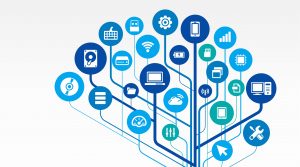Social Computing

Can a computer figure out who is a leader of a group of people from their conversation? Can a computer detect when a person has changed their mind about something even when they would not openly admit it? Can a computer find out the real person behind an avatar in an online game? Can we build an artificial agent that would hold its own in an online conversation? Can an artificial agent influence a person’s behavior?
In this course, you will learn about algorithms that answer some of these questions and many more.
Social computing is a research area at the intersection of computer science and social science, including psychology, sociology, communication, and linguistics. Its objective is to advance both fields by combining the power of data analytics, natural language processing, and artificial intelligence with the scientific method for studying human data and human behavior. Social science needs robust computer tools to make advances in the era of big, complex data; conversely, computer science needs guidance from social science theories on how to design and validate such tools. The Social Computing course will be a research seminar in which students will engage with research through a series of readings, understanding concepts in the social sciences about human language, attitudes, and behaviors and understand how these concepts can be formalized into computational models or algorithms.
Information Retrieval
This course will discuss theory and practice of searching and retrieval of text and bibliographic information.

Topics covered include automated indexing, statistical and linguistic models, text classification, Boolean and probabilistic approaches to indexing, query formulation and output ranking, information routing and filtering, topic detection and tracking, as well as measures of retrieval effectiveness, including relevance, utility, miss/falsealarm. Techniques for enhancing retrieval effectiveness including relevance feedback, query reformulation, thesauri, concept extraction, and automated summarization. Experimental retrieval approaches from Text Retrieval Conferences (TREC) and modern Internet search engines (Google, Yahoo!, etc) as well as recent advances into automated question-answering methods will be discussed.
